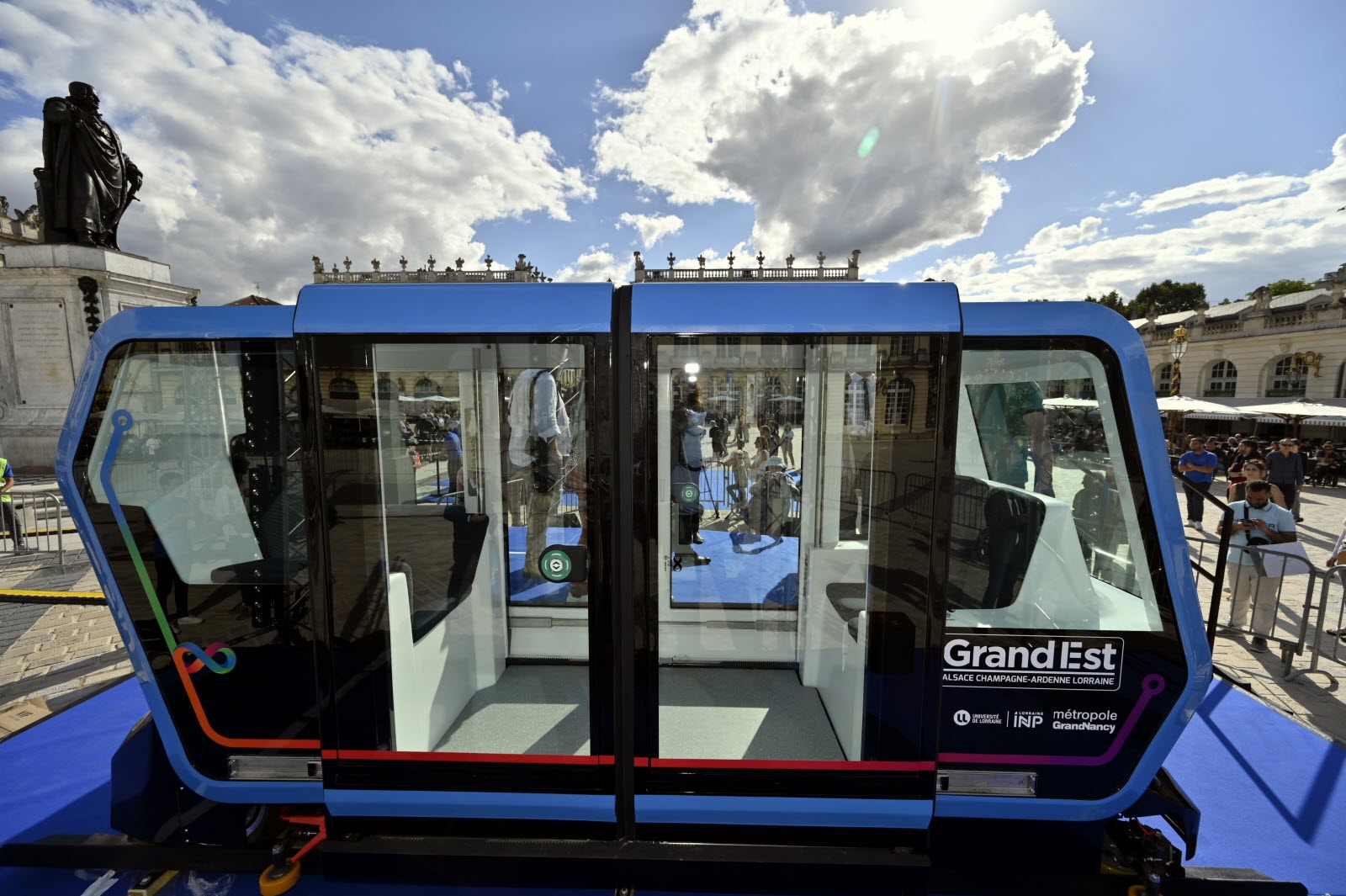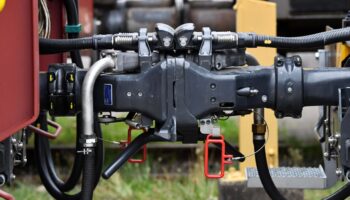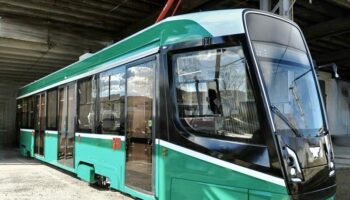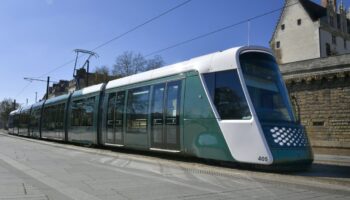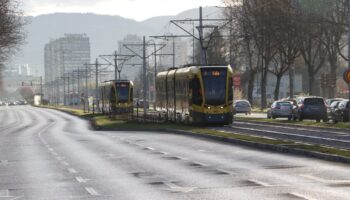France: The capsules are currently being tested on two tracks in Nancy and Tomblaine. They are planned to be launched in pilot mode with passengers in the city of Montigny-le-Bretonneux during the 2024 Olympic Games. The introduction into the commercial operation is scheduled for 2026 in Nancy.
Project background
The Urbanloop concept was developed in 2017 by the students and teachers from four Nancy engineering schools. In 2019, the Urbanloop SAS company was established for the industrial and commercial development of the project.
The project received financial support in the amount of €500,000 from the French region of Grand Est. In the same year the first test track was created in the Nancy-Brabois Technopole with a length of 400 m, the first three capsules were built and tested. As part of the enhanced trials the company later created a new 1.2 km track at Tomblain with four capsules.
Urbanloop capsules with an old design on the test track in Tomblaine, France. Source: Hesite Pas/youtube
In June 2022, the company presented a new design of the Urbanloop capsule, which will be used to create a pilot batch. The capsule is 3.4m long, 1m wide and 1.7m high. It can reach a maximum speed of 60 km/h. There are three seats that could be removed to allow passengers to accommodate large luggage or a wheelchair. It is equipped with doors on both sides, and there is an emergency hole at the back.
How it works
The capsule is equipped with 3 kW synchronous electric motors and supercapacitors, which are powered by a 42-72 V third rail and provide traction to wheels on rubber tires. The design of the Urbanloop is created in a way to minimize the amount of energy consumed.
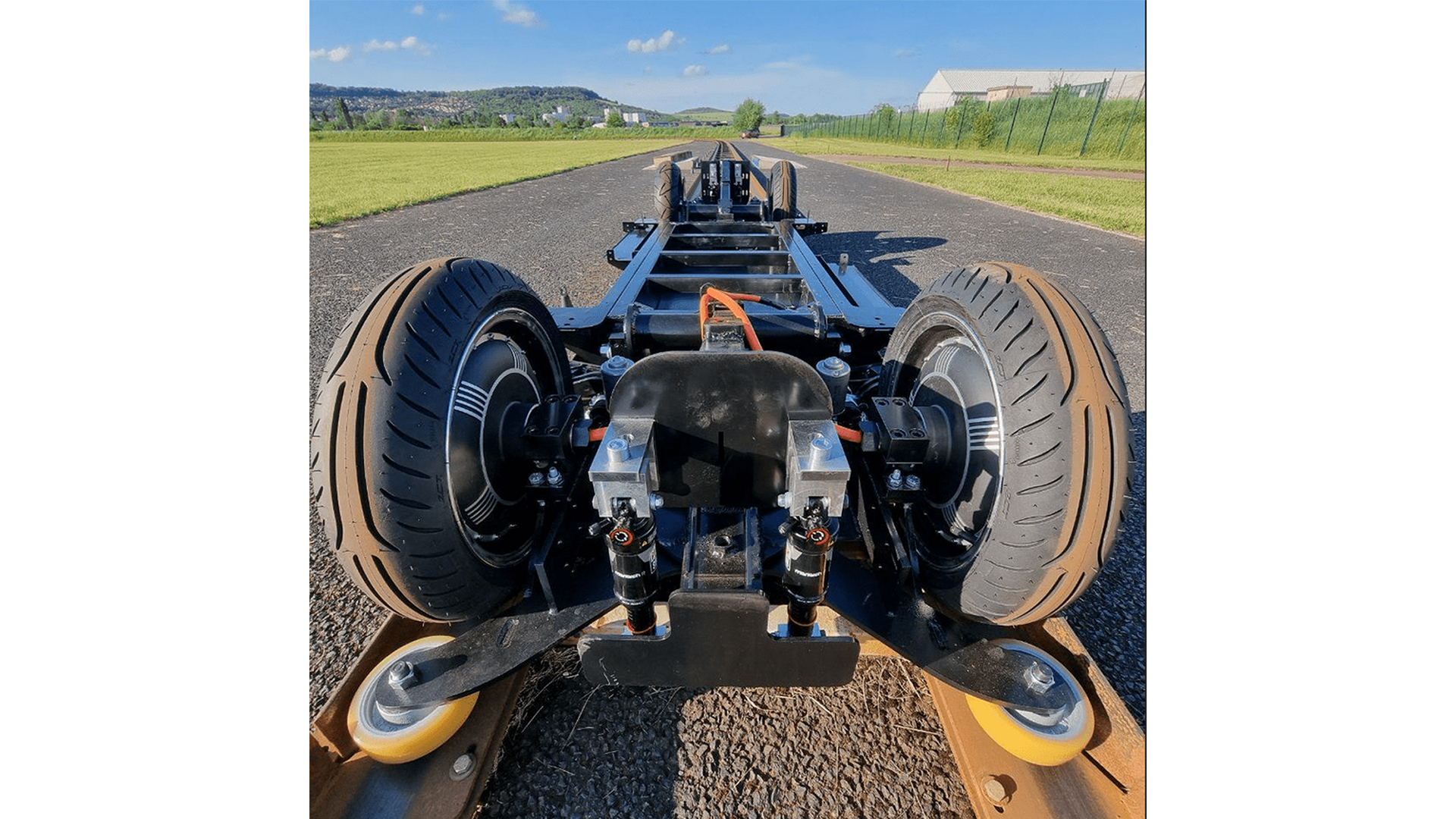 Urbanloop undercarriage. Source: Urbanloop
Urbanloop undercarriage. Source: Urbanloop
In May 2021, the project set an energy saving world record among autonomous rail transport. On the test track in Tomblain the capsule managed to run two laps with a total length of 1 km at a speed of 52 km/h, while consuming only 0.05 kWh. Also, according to tests conducted at a speed of 50 km/h, the noise level from the operation of the capsule was 63 dB.
Urbanloop infrastructure deserves special attention. As planned, it should consist of interconnected “loops” with a length of 1 to 25 km. A circle can have one “loop” or several, either interconnected or included in each other. According to the developers, the construction of 1 km of Urbanloop infrastructure will cost €1-4 mln.
Urbanloop: how it works. Source: Métropole du Grand Nancy/youtube
It is assumed that the fleet of capsules will be operated with the help of artificial intelligence. The system is to predict passenger flows, therefore minimizing waiting time during rush hours. The developers compare the principle of Urbanloop operation with an elevator – one capsule leaves the station and another immediately arrives after it.
Prospects of implementation
Urbanloop has been chosen by the French Ministry of the Environment to transport passengers during the 2024 Olympic and Paralympic Games in Paris. For that to happen, a 2.2 km loop with two stations will be installed in the city of Montigny-le-Bretonneux and 10 capsules launched on it. The capacity of the line is expected to be 240 passengers per hour. The capsules will run in autonomous mode but will be constantly monitored by staff on site. The cost of the project is expected to be about €5 mln EUR, more than €3 mln of which will be subsidized.
The company is now actively developing a 3 km loop between the amusement park and the new court district in Nancy. The project will cost €10-20 mln and should be completed by 2026. The number of running capsules is not specified yet.



